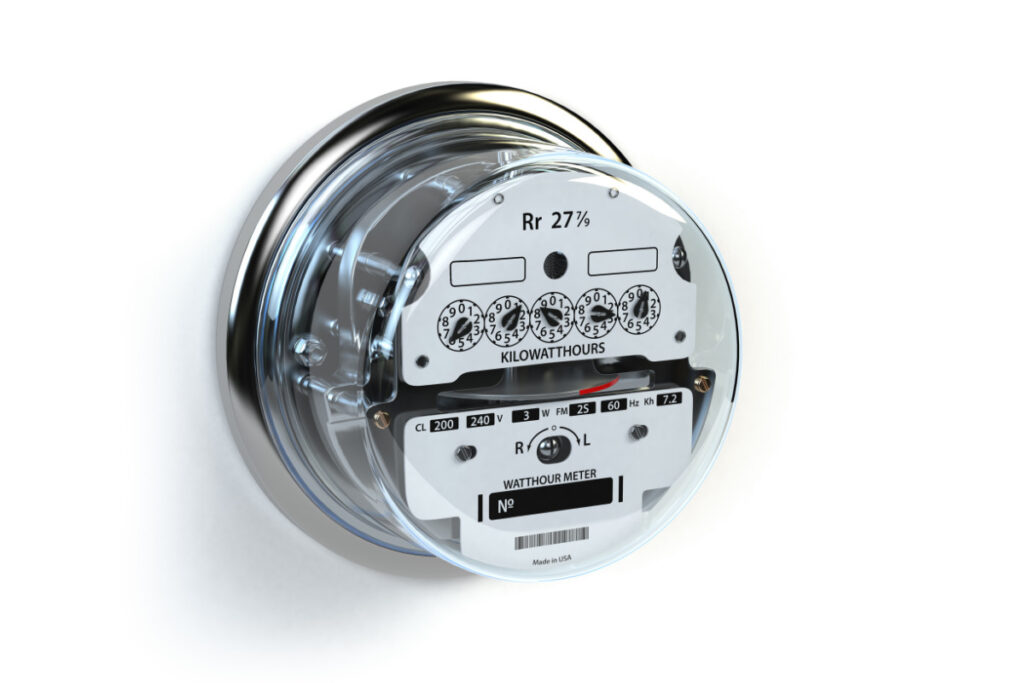Introduction
Navigating the complex world of energy options can challenge Illinois residents and businesses. That’s where Community Choice Aggregation (CCA) comes into play. An innovative approach to electricity procurement that empowers communities to negotiate lower power prices from suppliers collectively.
The comprehensive guide demystifies CCA in Illinois, exploring its origins, benefits, potential risks, and how to participate.
| Key Takeaways: |
|---|
| *Community Choice Aggregation (CCA) is a policy model that allows local governments in Illinois to procure power on behalf of their residents and businesses from alternative sources, aiming to negotiate lower prices and promote renewable energy options. *CCA provides several benefits for Illinois residents and businesses, including lower electricity prices, increased renewable energy usage, greater control over energy supply, more stable rates, reduced reliance on fossil fuels, improved consumer protection and local economic development opportunities. *Risks associated with CCA include limited control over energy sources, potential fluctuations in pricing based on market conditions and supplier choices, opt-out procedures complications among some customers who may forget to opt-out. However many communities in Illinois have found success with this approach as a way to save money on electricity bills while also prioritizing clean energy initiatives. *To participate in CCA in Illinois residents must understand the opt-out/opt-in procedures; Once enrolled or opted-in into the program residents have the option of switching suppliers at any time. |
Understanding Community Choice Aggregation (CCA)
CCA is a policy model for electricity markets that allow communities to collectively negotiate lower power prices from suppliers.
Definition And Purpose
CCA is a policy model empowering local governments to procure power from alternative sources.
CCAs aim to negotiate lower power prices and promote renewables by leveraging collective bargaining power.
CCA has been adopted by over 200 Illinois communities. This was established through the Illinois Electric Service Customer Choice and Rate Relief Law of 1997.
Cities like Oak Park have successfully reduced electricity costs for their residents and invested in clean energy initiatives.
Legislation And Regulation In Illinois
Illinois has legislation and regulations that allow for establishing Community Choice Aggregation (CCA) in over 200 communities. The Illinois Electric Service Customer Choice and Rate Relief Law of 1997 permits municipal aggregation. It enables local governments to purchase electricity for their residents and businesses.
CCA aims to procure cheaper electricity rates by allowing communities to negotiate lower prices from suppliers. Cities or towns aggregate the buying power of individual customers to negotiate lower energy supply rates with alternative sources. This is also known as municipal aggregation.
Municipal Electricity Aggregation
Municipal electricity aggregation is a policy model allowing local governments to procure power for their residents and businesses. Instead of individual households signing up with an electric provider, the community negotiates for lower prices from suppliers.
This process is called Community Choice Aggregation (CCA) in Illinois. CCA aims to provide rate relief and renewable energy options for community members. For example, Oak Park established its own aggregation program in 2012. They negotiated a rate 25% cheaper than ComEd was charging.

Pros And Cons Of CCA
CCA has both benefits and risks. On the positive side, CCA can significantly save residents and businesses by procuring electricity at lower prices than utility companies.
Additionally, CCA programs may encourage alternative power sources, such as renewable energy.
Benefits Of CCA In Illinois
Community Choice Aggregation (CCA) has several benefits for Illinois residents and businesses. Some of these benefits include:
- Lower Electricity Prices: CCA allows communities to leverage their collective bargaining power to procure electricity at lower prices than traditional utilities.
- Increased Renewable Energy Usage: CCA programs in Illinois have prioritized using renewable energy sources, which is good for the environment.
- Greater Control over Energy Supply: With CCA, communities have greater control over where their energy comes from and how it is produced, giving them more say in local energy production.
- More Stable Energy Rates: With a fixed-rate contract, residents and businesses can have greater certainty about their electricity bills, helping them to better plan their finances.
- Reduced Reliance on Fossil Fuels: By increasing renewable energy sources, CCAs in Illinois can help reduce the state’s reliance on fossil fuels, which can lower greenhouse gas emissions and improve air quality.
- Improved Consumer Protection: CCA programs in Illinois are regulated by the Illinois Commerce Commission (ICC), which ensures that consumers receive fair treatment from third-party suppliers.
- Promote Local Economic Development: CCA programs create jobs through partnerships with renewable energy suppliers and build clean energy infrastructure locally.
- Increased Awareness about Energy Use: As more municipalities participate in CCAs, consumers will have increased awareness about energy usage and its environmental impact.
In conclusion, Community Choice Aggregation provides several benefits for residents and businesses in Illinois. This includes lower electricity prices, increased renewable energy usage, greater control over energy supply, and more stable rates. It also reduces reliance on fossil fuels, improves consumer protection, promotes local economic development, and increases awareness about energy use.
Risks And Challenges Of CCA
One of the risks of implementing CCA is that it may lead to a reduction in revenue for utility companies, potentially leading to higher rates for non-participating customers. Here are some other risks and challenges associated with CCA:
- Limited control over energy sources – Participating communities may be unable to choose their own heads or suppliers, limiting their ability to prioritize clean energy initiatives.
- Fluctuating electricity rates – While CCA aims to provide more stable electricity rates, there is still some potential for fluctuations in pricing based on market conditions and supplier choices.
- Opt-out procedures – While opt-out procedures are designed to be straightforward, there is a risk that some residents or businesses may forget to opt out and end up being enrolled in the program without meaning to.
- Legal challenges – There have been legal challenges in Illinois and other states related to the legality of municipal aggregation under state law. While these cases have generally been resolved in favor of collection, they can still create uncertainty and delay implementation.
- Finding a qualified supplier – Communities must find a qualified supplier who can provide competitive prices while meeting any renewable energy or sustainability goals the community sets. This can be challenging depending on the size and needs of the community.
Many Illinois communities have successfully used CCA to save money on electricity bills and prioritize clean energy initiatives despite its risks.

How CCA Works In Illinois
CCA is established in Illinois via referendum or municipal ordinance and executed by choosing an electricity supplier that satisfies specific criteria. Read our Illinois Community Choice Aggregation guide to learn more about its advantages for residents and businesses.
CCA Establishment And Implementation
To establish a CCA in Illinois, local governments must follow specific procedures laid out by the state. According to the Illinois Power Agency, communities must pass an ordinance or resolution authorizing aggregation and submit it to the state for approval.
Once a supplier is chosen, they work with the community’s electric utility company to coordinate power delivery and billing.
For example, Oak Park Community Choice Aggregation was established in 2017 after residents voted on a referendum approving its formation.
CCA implementation can also lead to significant economic benefits for participating communities.
CCA Plan Of Operation In Illinois
Implementing a Community Choice Aggregation (CCA) plan in Illinois involves several steps. Local governments must establish the CCA program and develop a Plan of Operation that outlines how the program will operate.
The Plan of Operation must include information such as the source(s) and type(s) of energy to be procured, the duration of contracts with suppliers, and any additional services or programs that may be included in the aggregation program.
Once established, residents are automatically enrolled in the CCA program. But have an opt-out option if they prefer to remain with their current supplier. In Illinois, municipalities can choose either an “opt-out” or “opt-in” approach for participation in CCA programs.
An opt-out approach allows all eligible customers within a municipality to participate unless they take affirmative action to decline participation. In contrast, an opt-in approach requires eligible customers to affirmatively elect participation to join.
Economic And Environmental Benefits Of CCA In Illinois
Community Choice Aggregation (CCA) can have numerous economic and environmental benefits for communities in Illinois. Here are some of the key benefits:
- Lower Electricity Rates: CCA programs offer cheaper electricity rates than traditional utilities by leveraging collective bargaining power.
- Increased Competition: CCA programs introduce competition into the energy market, which can lead to lower prices and increased innovation in renewable energy sources.
- Choice of Energy Sources: CCA programs allow communities to choose their own energy sources, including renewable options like wind and solar power.
- Environmental Benefits: By sourcing energy from renewable sources, CCA programs help reduce carbon emissions and promote sustainable energy solutions.
- Local Control: Municipal aggregation gives local governments more control over their energy supply options, allowing them to make decisions that align with community priorities and values.
- Economic Development: Encouraging renewable energy sources through CCA programs creates new opportunities for economic growth in clean energy industries while reducing reliance on non-renewable resources.
Overall, CCA provides a promising approach to achieving rate relief for consumers while moving towards sustainable community-wide goals through collective bargaining power for negotiating cheaper electricity rates with suppliers.

Participating In CCA In Illinois
To participate in CCA in Illinois, residents must understand the opt-out and opt-in procedures, choose a CCA supplier, and be aware of billing and rates – read on to learn more about how you can benefit from this innovative energy procurement strategy.
Opt-out And Opt-in Procedures
When participating in CCA in Illinois, it is important to understand the opt-out and opt-in procedures. Here are some key points to consider:
Opt-out: When a municipality establishes a CCA program, all eligible residents and small businesses within the community are automatically enrolled unless they opt-out. The opt-out period typically lasts 21 days after residents receive a notice of the CCA program. Residents can opt-out without penalty by contacting their electricity supplier or the CCA program administrator.
Opt-in: Residents who do not fall under the eligible category for automatic enrollment may still have the option to opt-in to the CCA program. They should contact their local government or electricity supplier for more information on how to do so.
Switching suppliers: Once enrolled, residents can switch suppliers if they find another offer that suits their needs better. However, it is important to note that some contracts may include penalties for early termination.
Notification: Suppliers and administrators of CCA programs must provide clear and concise information about enrollment, billing, rates, and contract terms. This includes providing timely notices of rate changes or contract renewals.
Understanding these procedures is essential when participating in a CCA program in Illinois. It allows residents to make informed decisions about their electricity supply and ensure they receive fair rates.
Choosing A CCA Supplier
In Illinois, customers participating in Community Choice Aggregation (CCA) can choose their own CCA supplier. Customers should consider pricing, renewable energy options, and customer service when choosing a supplier.
Customers should research potential suppliers to find a reliable and trustworthy provider who meets their needs. Additionally, customers should be aware that they have the option to opt out of the CCA program if they are dissatisfied with their selected supplier or if they choose to revert to conventional utility services.
Understanding Billing And Rates
Understand the billing process and the rates associated with the chosen electricity supplier when you join a CCA program.
| Element | Description |
|---|---|
| Billing | Under a CCA program, you will still receive your monthly bill from your original utility company (e.g., ComEd, Ameren), as they continue to manage the delivery of electricity and maintenance of infrastructure. The only difference is the electricity supplier's name and rate listed in the supply portion of your bill, which will reflect the CCA rate negotiated by your community. |
| Rates | The rates in a CCA program are typically lower than the utility company's default rate due to the community's collective bargaining power. However, it's essential to compare the negotiated CCA rate with the current utility rate, as well as other alternative suppliers' rates, to ensure it's the most cost-effective option for your household or business. |
| Rate Structure | The rate structure in a CCA program can either be fixed or variable, depending on the specific program and supplier. Fixed rates offer price stability over the contract term, while variable rates can change monthly based on market conditions. While evaluating the CCA supplier, ensure you understand the rate structure and any potential price fluctuations. |
| Contract Length | CCA contracts can vary in length, typically ranging between one to three years. It's essential to understand the contract length and any early termination fees associated with the chosen CCA supplier, as this can impact your long-term electricity costs and ability to switch suppliers. |
| Green Energy Options | Some CCA programs may offer green energy options or renewable energy certificates (RECs) at an additional cost. These options allow consumers to support renewable energy development and reduce their carbon footprint. It's essential to assess the environmental benefits and any additional costs associated with these options when choosing a CCA supplier. |
Conclusion And Future Outlook For CCA In Illinois
In conclusion, this comprehensive guide has thoroughly understood Community Choice Aggregation (CCA) in Illinois. We’ve explored the benefits and risks of CCA, how it works in Illinois, and the opt-in and opt-out procedures for residents.
Moreover, municipal aggregation allows communities to procure cheaper electricity rates from suppliers while promoting clean energy initiatives. The future outlook for CCA in Illinois looks promising. More municipalities continue to explore alternative power sources through collective bargaining power.

FAQs
- What is Community Choice Aggregation (CCA) in Illinois?
Community Choice Aggregation allows local governments in Illinois to procure and supply electricity for their residents and businesses. It also provides more renewable energy options at competitive rates than traditional utilities.
- How does CCA benefit the environment?
By offering more renewable energy options, CCA reduces carbon emissions and helps promote cleaner energy generation. Additionally, it gives communities greater control over their energy choices. It allows them to choose suppliers that meet their sustainability goals.
- Can I opt out of my community’s CCA program?
Yes, customers can opt out of a community’s CCA program. If they prefer to continue using their current utility provider or another supplier.
- Will my electricity bill increase under a CCA program?
The cost of electricity under a CCA program may vary depending on market conditions and other factors such as supply and demand. Still, many communities have reported savings for customers due to lower rates negotiated through bulk purchasing agreements with alternative suppliers. Compare providers’ rates with your usage patterns to determine prices for the selected aggregation plan.
